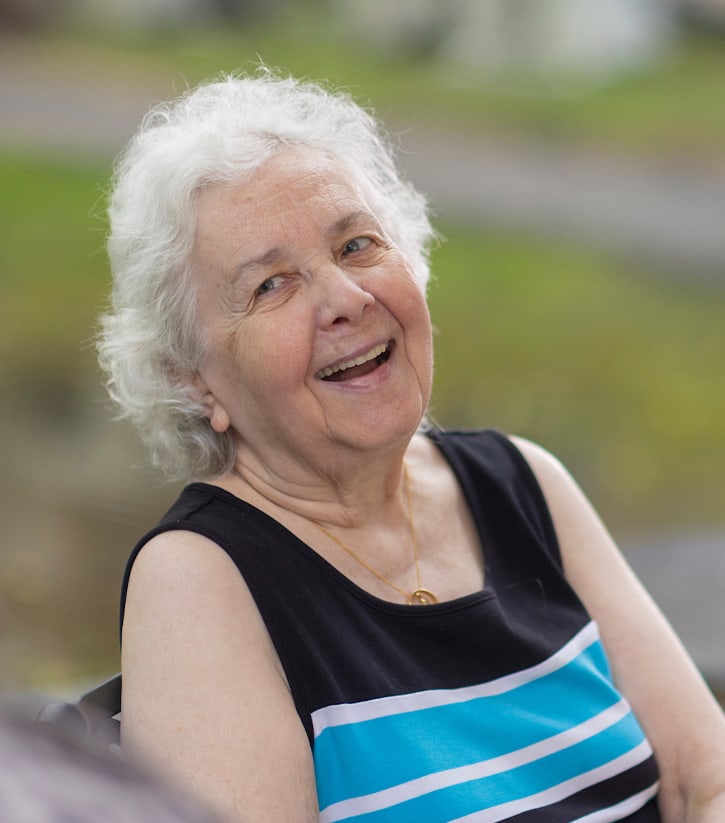The words we use with our aging parents can either bring us closer or create unnecessary tension. As they navigate the changes that come with aging, they need support and understanding, not dismissive or critical remarks. Phrases like “You already told me that” or “You’re too old to do that” might seem harmless, but can come across as hurtful or patronizing. Thoughtful communication is essential as they face challenges with mobility, memory, or independence.
The Importance of Language: What You Say Matters
Your parents have spent decades making their own decisions and maintaining their independence. When age-related changes occur, they may already feel frustrated or anxious about these shifts. Insensitive comments can amplify these feelings and make them feel like they’re losing their dignity along with their abilities.
Respectful communication acknowledges that your parents are still the capable, intelligent people who raised you. They deserve to be treated with the same consideration you’d want for yourself as you age.
Foster Good Communication With Your Senior Parents
Patience and empathy form the foundation of positive communication with aging parents. Remember that they’re adjusting to changes in their bodies and abilities, which can be frustrating and scary.
Listen actively to their concerns and validate their feelings. Ask open-ended questions that show you care about their perspective. Most importantly, involve them in decisions that affect their lives rather than making choices for them.
8 Things To Avoid Saying To Your Aging Parents
Navigating conversations with aging parents requires sensitivity and thoughtfulness. Specific phrases, even when well-intended, can come across as dismissive or hurtful, ultimately impacting your relationship with them.
1. “You’re not as sharp as you used to be.”
This comment directly attacks your parents’ cognitive abilities and self-worth. Even if you are noticing changes in their memory or processing speed, pointing it out this way is hurtful and unhelpful.
Better Approach: If you’re genuinely concerned about cognitive changes, ask, “How are you feeling lately?” or “Is there anything I can help you with?” Focus on offering support rather than highlighting deficits.
2. “This isn’t hard. Why are you struggling to do this?”
What seems simple to you might be genuinely challenging for someone dealing with arthritis, vision changes, or other age-related conditions. This comment minimizes their experience and makes them feel inadequate.
Better Approach: Say, “Would you like me to help with that?” or “Let’s figure this out together.” Offer assistance without making them feel incapable.
3. “You always tell me the same story!”
Repetitive storytelling is common as people age, and these stories are often meaningful memories your parent wants to share. Shutting them down damages your connection.
Better Approach: Listen actively and engage with the story. Ask follow-up questions like, “What was your favorite part about that experience?” Show genuine interest in their memories.
4. “Why can’t you remember that?”
Memory changes are often beyond your parents’ control. This question creates shame and frustration without solving anything.
Better Approach: Try, “Let me help you remember” or “Would it help if we wrote this down?” Focus on providing practical solutions rather than fixating on the problem.
5. “You’re too old to drive.”
Taking away driving privileges affects your parent’s independence and freedom. Making this declaration without discussion feels like losing control over one’s own life.
Better Approach: Express your concerns by saying, “I’ve noticed some changes when you’re driving. Can we talk about how to keep you safe?” Start a conversation rather than making a unilateral decision.
6. “You need to use a cane/walker!”
Mobility aids can feel like symbols of aging or disability. Demanding their use without sensitivity can create resistance and resentment.
Better Approach: Suggest, “Would you be interested in trying a walking aid to help with stability?” or “Let’s ask the doctor about options that might help you feel more confident walking.” Make it their choice whenever possible.
7. “You don’t need a jacket today; it’s warm outside.”
Your parent may feel cold due to medication, circulation issues, or other factors. Dismissing their physical sensations treats them like a child who can’t judge their comfort.
Better Approach: Say, “I know you’re feeling cold. Would you like to bring a light jacket just in case?” Validate their experience while offering gentle guidance.
8. “Just let me handle it.”
While you might mean to be helpful, taking over tasks without asking can make your parent feel useless and pushed aside.
Better Approach: Ask, “Would you like help with this, or would you prefer to handle it yourself?” Respect their autonomy while offering support when it’s needed.
How to Approach Moving to Senior Living

Discussing senior living options with a loved one can feel challenging, but with the right approach, it can be a positive and empowering conversation. At Heatherwood, part of Retirement Unlimited, Incorporated (RUI), we’re here to help make this transition easier.
- Focus on the positives: Highlight the social opportunities, maintenance-free lifestyle, and access to care that senior living communities provide.
- Frame it as an upgrade: Emphasize how senior living can elevate their lifestyle by offering more freedom and enjoyment, rather than addressing declining abilities.
- Empower their choice: Use language that preserves their sense of control, such as, “We’d love for you to explore places that could offer you more opportunities to enjoy what you love.”
Senior living at Heatherwood is about gaining independence, not losing it. Our residents find meaningful experiences, support, and a community that helps them live the life they’ve worked so hard for.
Building Stronger Relationships Through Respectful Communication
The way you speak with your aging parents shapes not only your current relationship but also the memories you’ll carry after they’re gone. Choose words that show love, respect, and understanding rather than frustration or condescension.At Heatherwood, our award-winning team, comforting surroundings, and exceptional services have enriched senior lives in Burke, VA for over 30 years. Contact us today to learn how we can support your loved one so you can focus on quality time with them.














